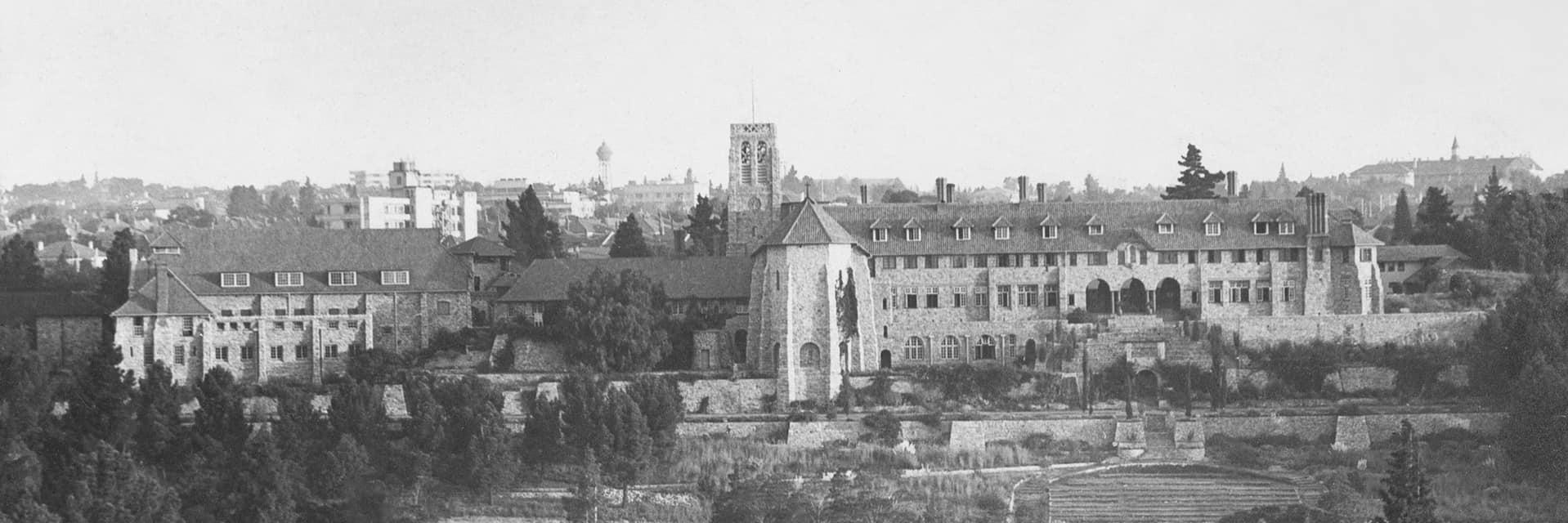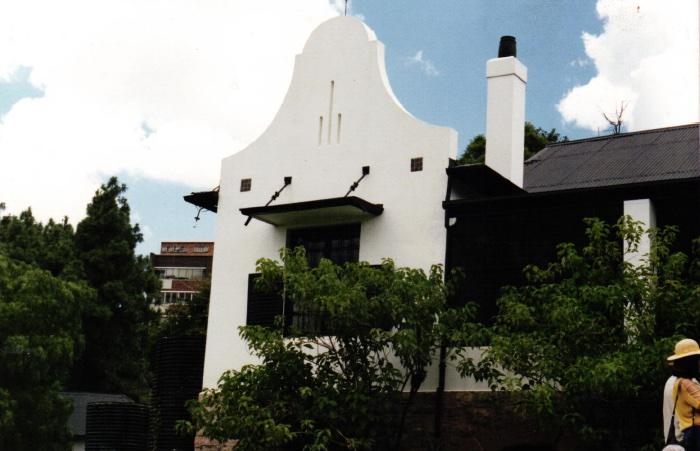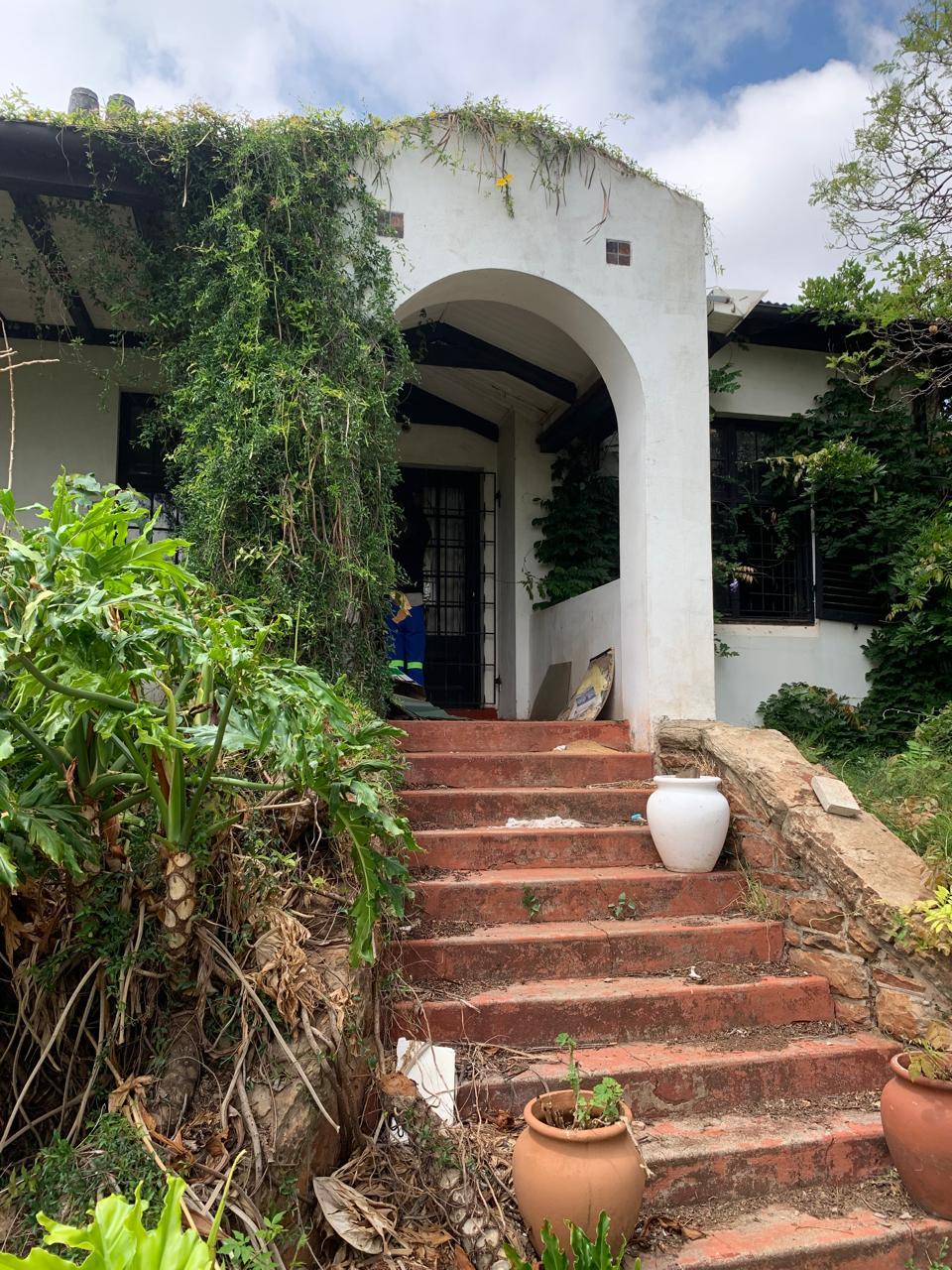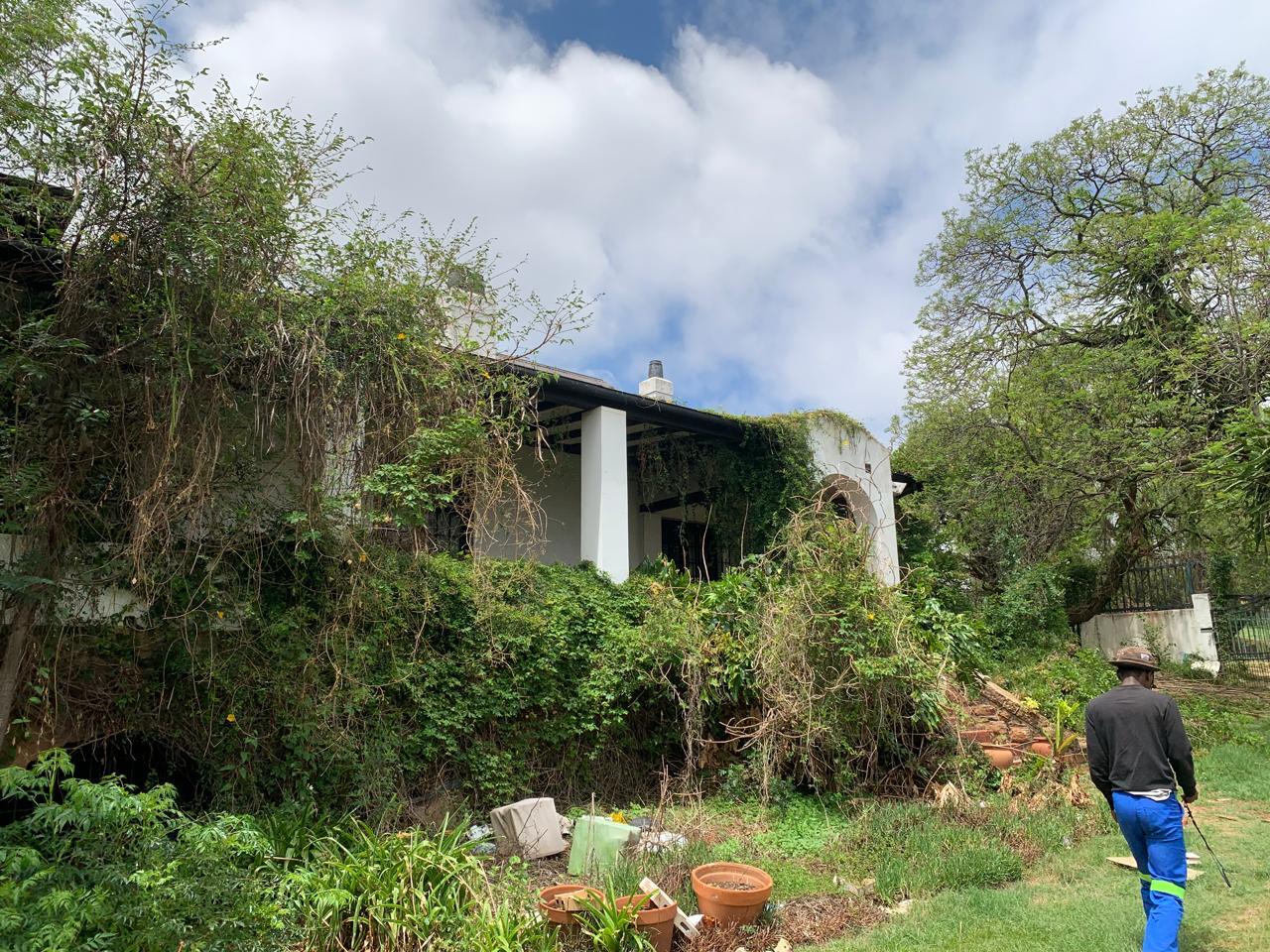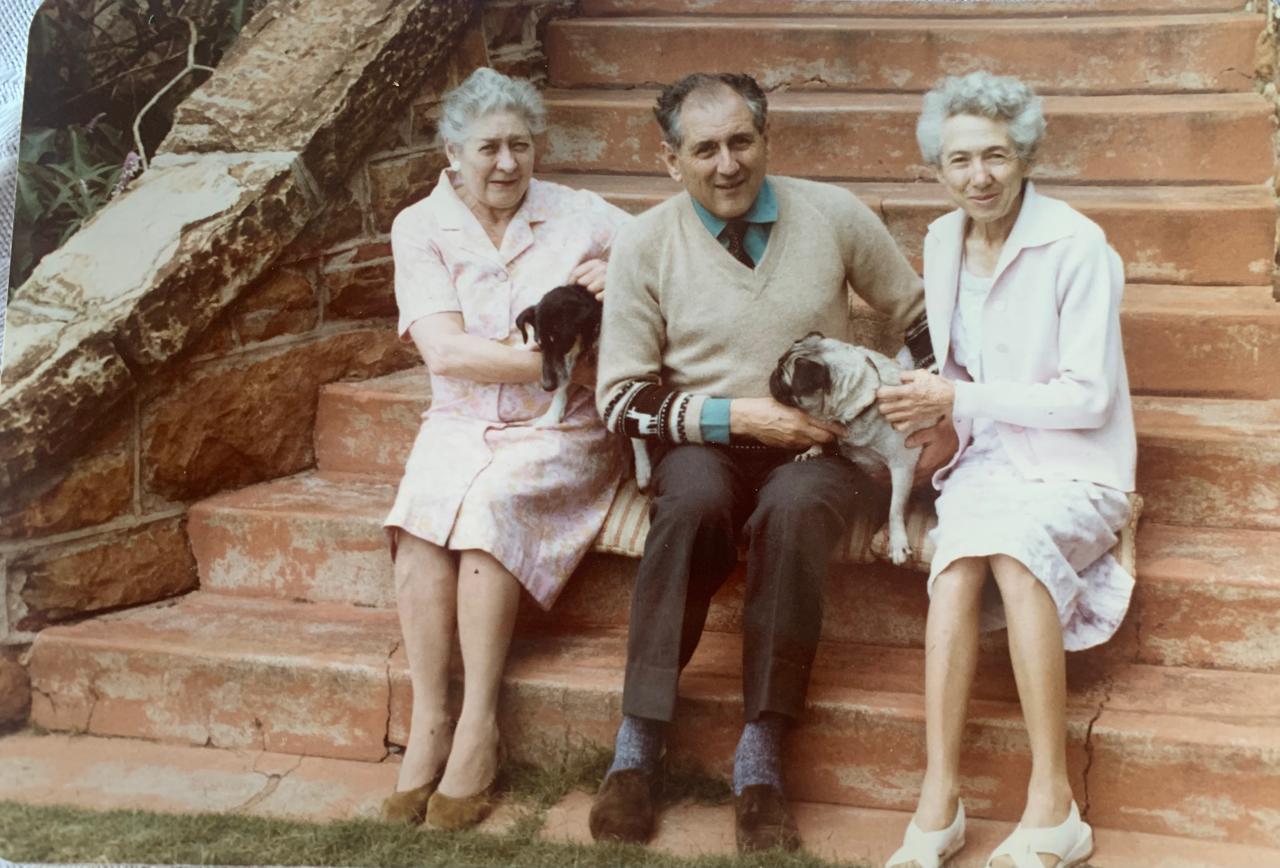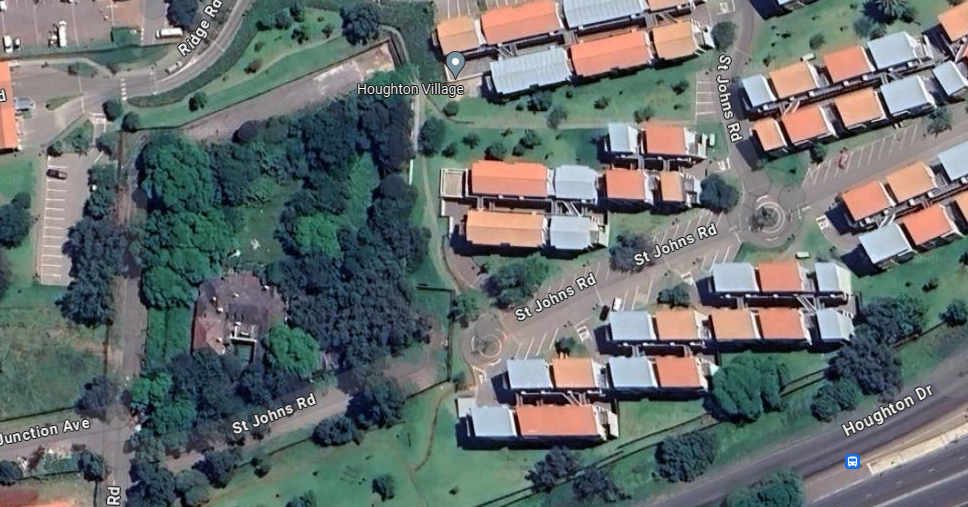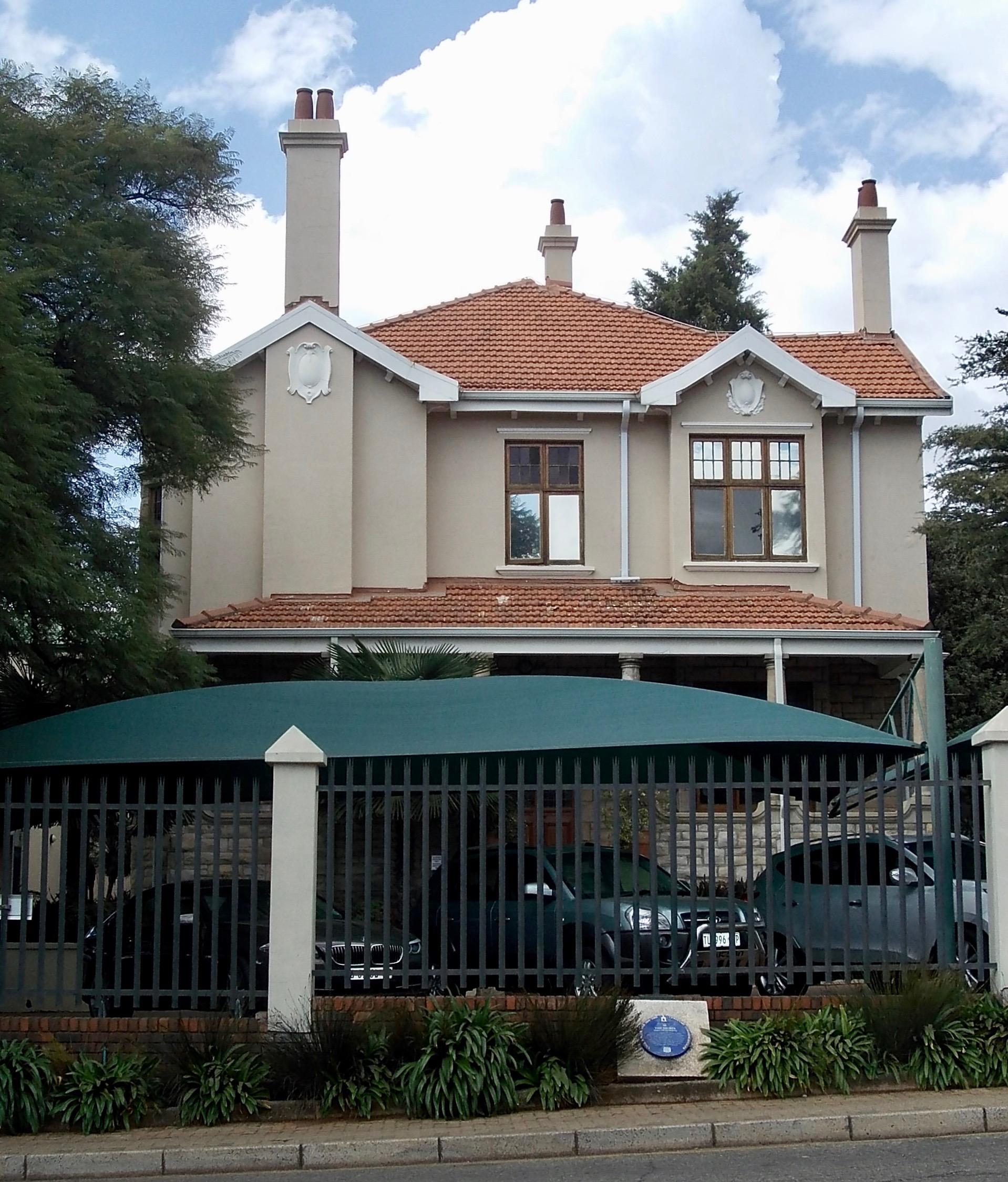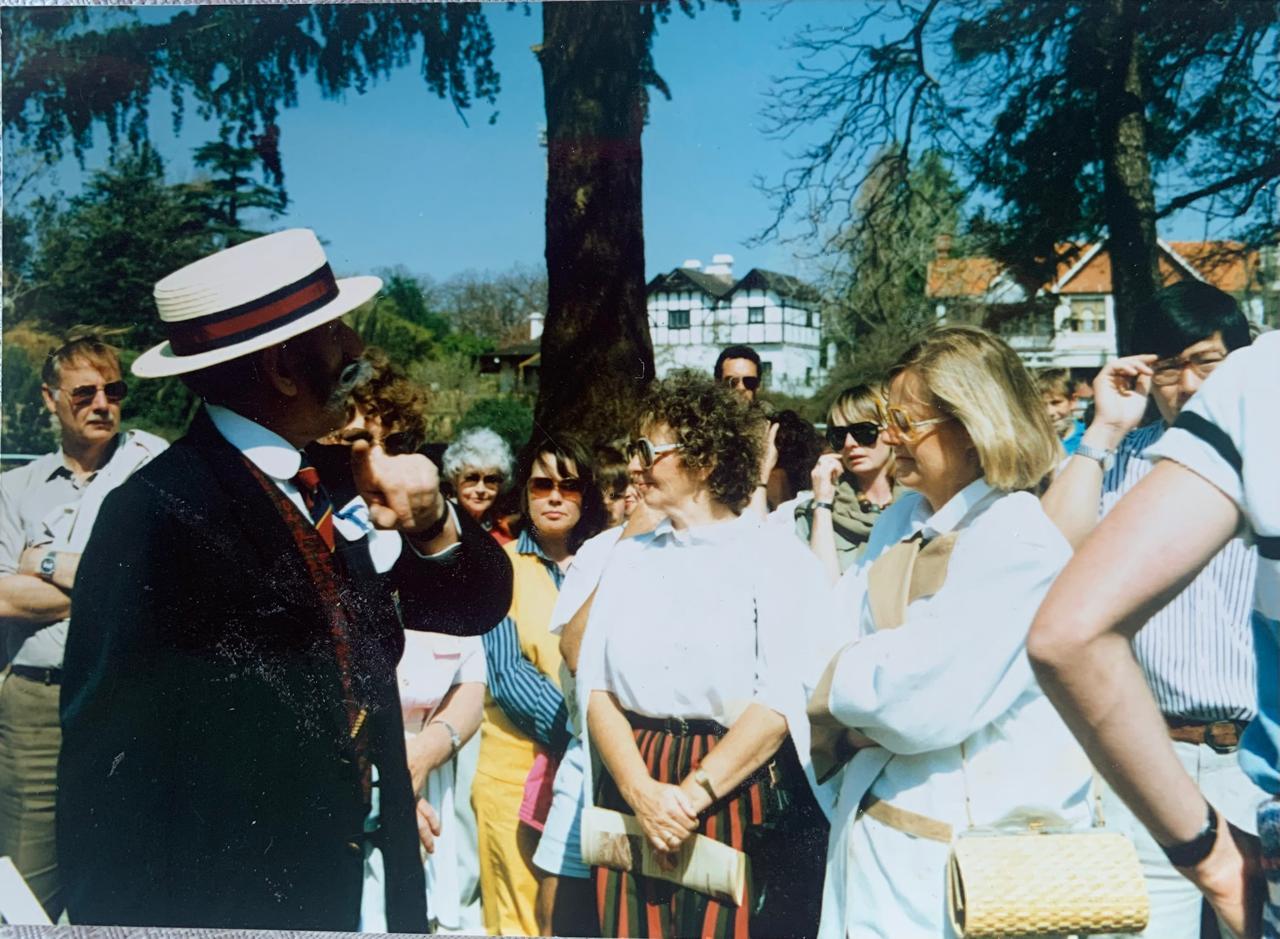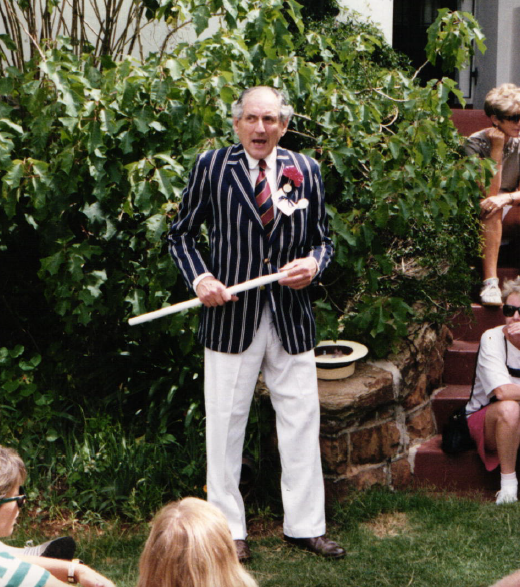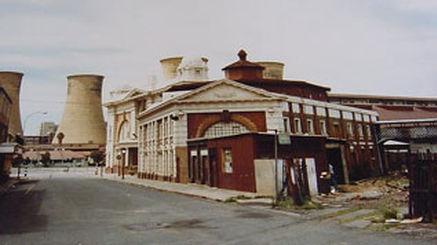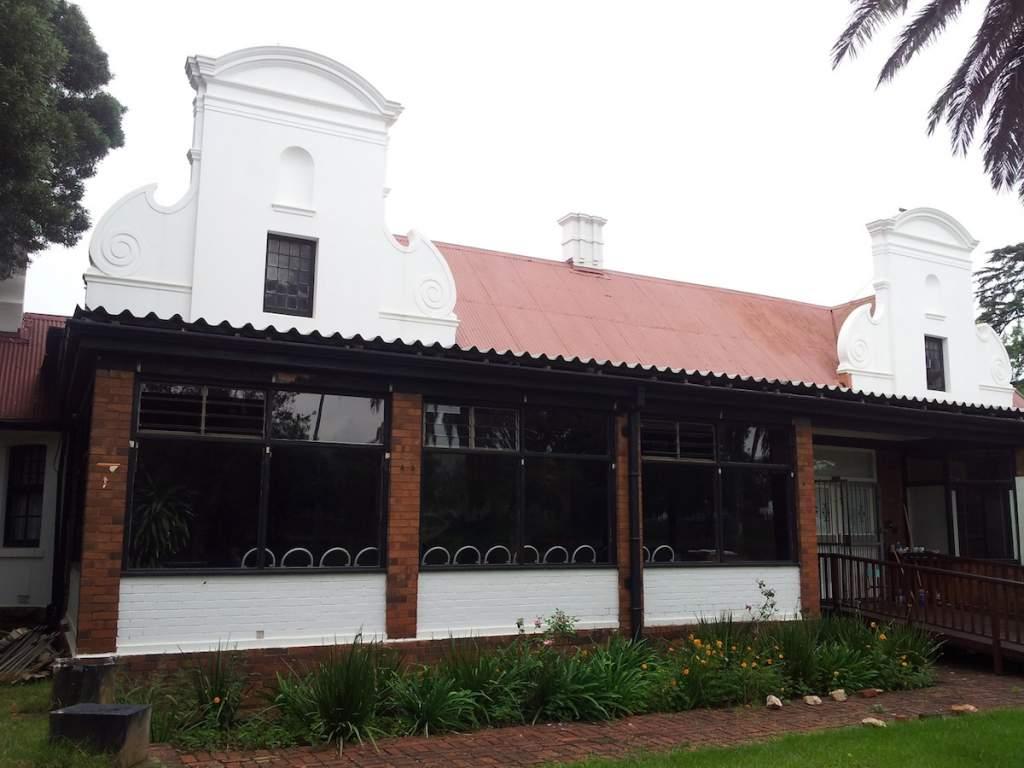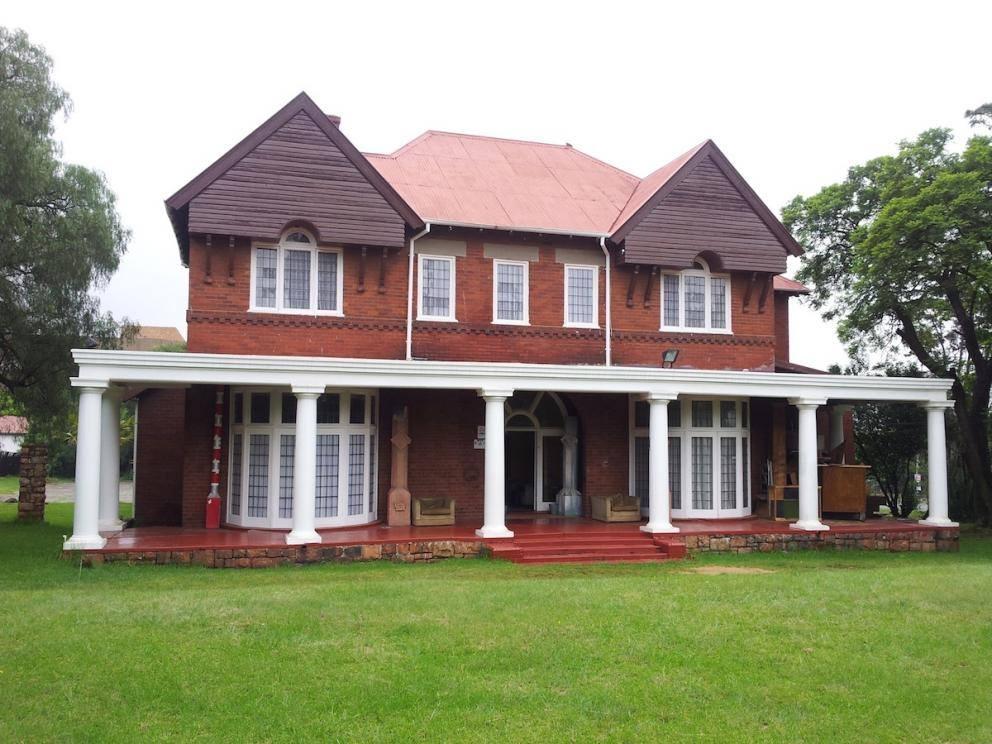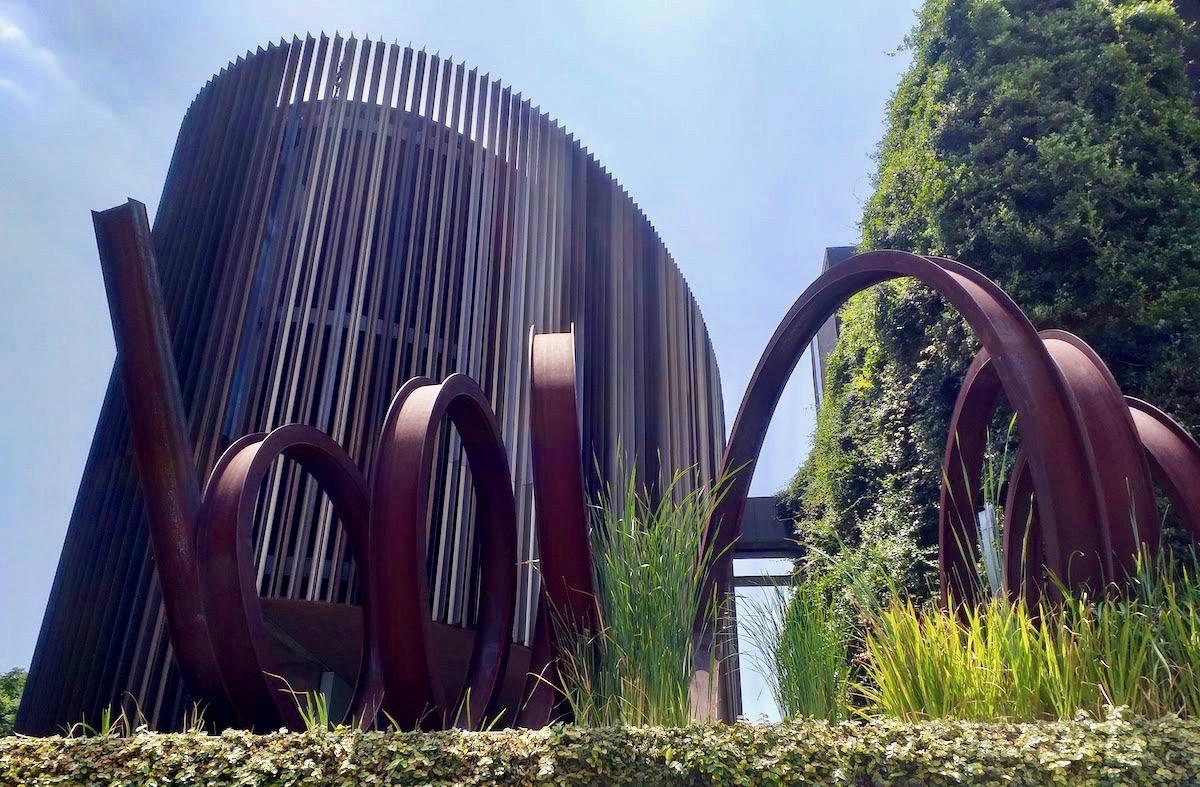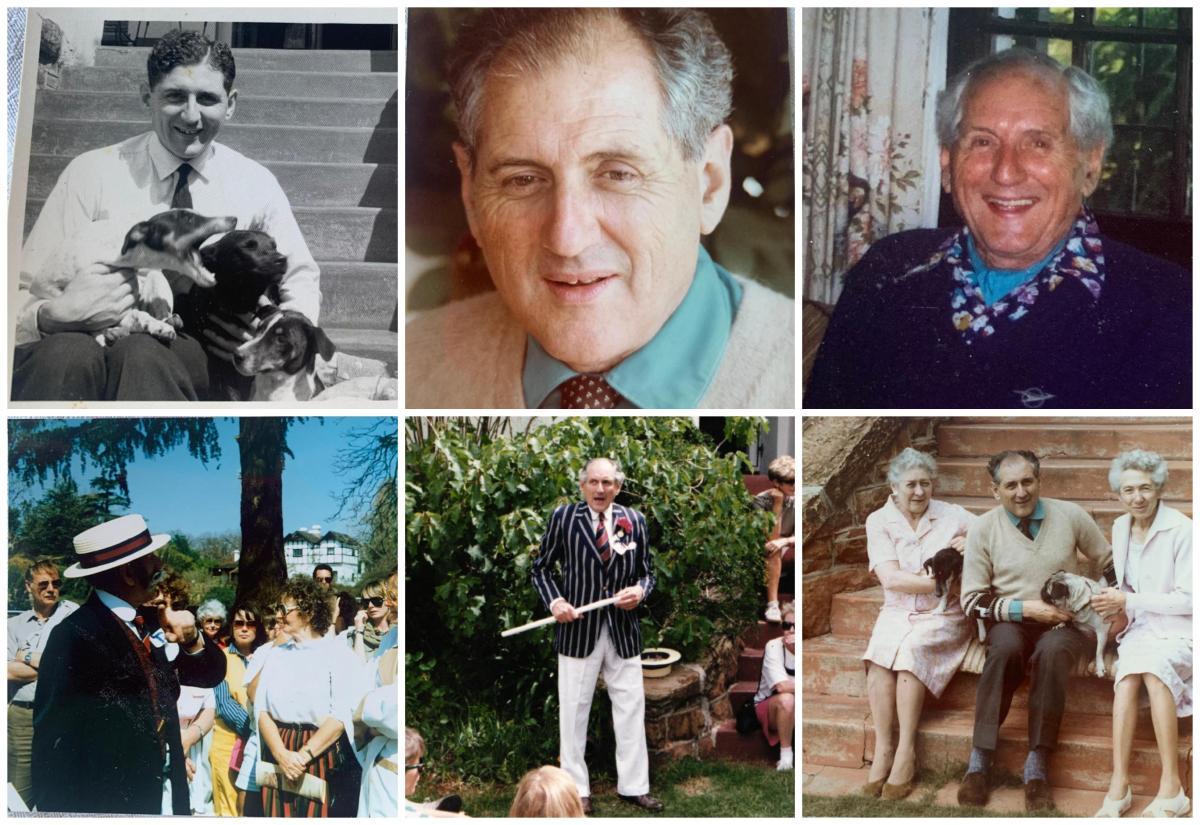
Disclaimer: Any views expressed by individuals and organisations are their own and do not in any way represent the views of The Heritage Portal. If you find any mistakes or historical inaccuracies, please contact the editor.
Malcolm Freeland was a passionate Johannesburg heritage man backed by his education, his professional training and experiences, his family background, life for a century in his fine heritage home and in his commitment to and work for the Parktown and Westcliff Heritage Trust (today the Johannesburg Heritage Foundation).
Malcolm was born in Johannesburg in 1920. He was educated at St John’s College and matriculated in 1938. He studied architecture at Wits University and graduated in 1948 with a Bachelor of Architecture. He also studied town planning and worked in London for a couple of years in the early 1950s. Malcolm returned to Johannesburg and was employed by the Johannesburg City Council in the City Engineers Department. He was an architect and town planner and at one point in his career was responsible for Johannesburg's aesthetic standards as the Aesthetics Officer for the Johannesburg City Council, a task he found singularly frustrating.
St John's College
Malcolm maintained professional membership of several bodies. He was an associate of the Royal Institute of British Architects, a member of the South African Institute of Architects, a member of the South African Institute of Town and Regional Planning and was a fellow of the British Royal Society of Arts. He was a subscriber all his life to the National Geographic Magazine.
Malcolm lived at Darjeeling House, a remarkable early heritage home in Upper Houghton, close to Louis Botha Avenue, and on the borders of Parktown.
Darjeeling House (Johannesburg Heritage Foundation)
Malcolm’s father Ernest Ford Freeland was a Scot from Dundee, and spent a decade of his life in India as a manager of a tea plantation, the Ging Tea Estate in Darjeeling in the Himalayas in the period 1893 -1904. He also spent time in Ceylon. Ernest arrived in South Africa in 1907 and initially attempted to establish a tea plantation in Natal in the Greytown area. There he met Christina Louisa Colenbrander of Natal. The Colenbrander family farm was called Hummelo at Nonoti near Stanger. The Collenbranders were of Dutch origin and a well-known settler family. The Freeland couple married in 1910.
Following a move to Johannesburg, Chrissie and Ernest first lived in Bellevue (86 Dunbar Street) where their eldest child, Patience was born. Ernest Ford Freeland established a tea and coffee importing business in Johannesburg, the Direct Tea Agency. Christina and Ernest purchased their dream house at 1 St John’s Road, Upper Houghton, in 1916. It was designed by the Swiss architect, Theophile Schaerer and built in 1910 for a Mrs H A Robinson. The house was originally named Shlobane (meaning – get together). Malcolm’s second sister Joan was born at Shlobane in February 1917, indicating that the Freeland parents had already purchased this early Upper Houghton house. The Freeland family chose the name Darjeeling reminding Ernest and Chrissie of the Himalayas; Ernest and Chrissie embarked on a grand six-month tour of Zanzibar, India, and Ceylon in 1919 leaving their children in the care of Collenbrander relatives.
More recent shot of the Freeland home
Malcolm was the third child and was also born in the family home in 1920. It was surely a Johannesburg record that he was born, lived and died in the same house just short of his centenary in 2020.
Sadly, Malcolm’s father, Ernest, died young, in 1923 of tuberculosis. His widow Chrissie and her three children continued to live in their beautiful home.
None of the Freeland siblings married. Patience, the oldest sister, was a home body, enthusiastic about fashion and very much the lady who took on the housekeeper role. Joan qualified as an industrial chemist and pursued a career as an independent woman. She was a remarkable woman in her own right. Their mother Chrissie died in the Upper Houghton home in 1960 and the three siblings continued to live on in the house caring for one another until their own passing.
Malcolm and his sisters
The address is 1 St John’s Road but there are in fact four street addresses. The house was registered in the National Register of conservation-worthy sites in 1984 (we did not have Provincial Monuments then, only National, but after 1994 it was relabelled under the category of Provincial Heritage).
A remarkable feature of this property was the size – as it covered eight stands or erven. It had a large carefully laid out flower garden, an orchard and tennis court. There was a separate staff complex.
In the 1980s, the large old properties of this corner of Upper Houghton lying between Louis Botha Avenue and Carse o’ Gowrie had become prime targets for developers as detached, aging, big homes, often on an acre of land, were an appealing property proposition. In the 1980s, Sanlam bought up these homes with an eye on demolition, rezoning and redevelopment. Consolidation of stands followed and the bulldozers arrived to flatten all. However, the Freeland family resisted the scheme, fought big business and the loss of their home. They succeeded and Darjeeling was rather stranded as an island and sole survivor of an upper-class somewhat colonial way of life in a very different Johannesburg. They were witness to the demolitions around them that saw old homes give way to the Isle of Houghton residential development and the office park. They remained to live out their lives in their prize – their beloved family home. Ultimately, they hoped their home would become a museum, but this was not to be.
An island in Upper Houghton (Google Maps)
Their home was a pocket of little England, and over the years as the home acquired heritage status. It became an expression of a fast-disappearing lifestyle. The family were all keen royalists and it was a point of pride that they had enthusiastically welcomed the Royal family to Johannesburg in 1947. Their collection of royal memorabilia, books, photographs, and magazines was vast. Malcolm and his sister Patience were presented to Queen Elizabeth at her first royal garden party in London in 1953.
Darjeeling, in addition to its original billiard room (later a dining room), had a fine wooden panelled library. Malcolm never seems to have stopped buying books. He must have been Exclusive Books's best customer and the books he chose were always beautifully produced – art, architecture, history, biography, travel (Italy and the UK were favourite themes), collectable jewellery, fashion, gardening and more.
The family were collectors of antiques, hunting trophies (these animals had been shot by their mother, Christina Louisa), fine clothes and good books. They made their own home-made jam from plums picked from their garden. Water saving was very important, and they had eight rain barrels. They kept abreast of the world with subscriptions to newspapers and to a variety of other travel, fashion and professional journals and magazines.
Malcolm was an inveterate cutter and saver of newspaper press cuttings on any subject that interested him, from heritage to politics to recipes and helpful how to do advice. The Star newspaper (once Johannesburg’s premier evening paper) was delivered to the family for over 100 years, a tradition that had been started by Malcolm’s father who first took out a subscription to the city paper. Cupboards, shelves and cardboard boxes were found stuffed with old newspaper cuttings.
Malcolm was an amateur artist and keenly interested in the arts, particularly theatre, ballet and music, passions he shared with his sisters, Patience, and Joan Freeland.
The family were keen travellers - to Europe, the USA, the Far East, often on group tours. There were adventures and cruises to Japan and India. Malcolm was proud of the fact that he had flown on a Concorde flight from London to New York.
Andre Marais of the Upper Houghton Residents Association and chair of the Joint Plans Committee East of Johannesburg Heritage, recalled: “Malcolm was Upper Houghton's longest residential inhabitant. In this regard Malcolm, over the years, always attended the Upper Houghton AGMs and he was ever supportive of community initiatives. Malcolm and his sisters truly embraced and were a part of the fabric which has made Upper Houghton the desirable neighbourhood it still is today.”
Bruce Eccles remembered Malcolm: “Visiting Malcolm was like stepping back in time. It was as if World War II never happened. Having lived in Upper Houghton all his life, he was a repository of much community history. Even into advanced years he displayed an active interest in the UHRA, involving himself wherever he could. What a gentleman.”
Malcolm is fondly remembered as a keen member and tour guide of the Parktown and Westcliff Heritage Trust, the predecessor of the Johannesburg Heritage Foundation. He was a good friend and passionate defender of Parktown heritage and contributed to the series of pamphlets, the Parktown Collection published on the occasion of the Parktown centenary in 1992; he wrote the pamphlet on The Shires (Outeniqua) - the heritage house in St Andrews Road, Parktown, now the Wits Business School.
The Shires (The Heritage Portal)
Flo Bird from the Johannesburg Heritage Foundation remembers Malcolm on one occasion leading a Parktown tour and becoming so absorbed that the tour group failed to return on time. In desperation, a search party was sent out, but eventually the group straggled in exhausted, but thrilled with all they had seen and heard.
Tour leader
Flo added: “The three Freelands were great fun at a party. They joined the fancy hat parade, swallowed almost lethal cocktails, and danced the night away. I cannot remember how they got home.“ Photographs survive of Malcolm wearing a dramatic black and red opera cloak and a top hat!
Vehemently anti-Nationalist and having no religious affiliations they were favourites in the Bird family. They were also close friends of our Ward Councillor Rae Graham and her husband, Cecil.
Malcolm was always the perfect gentlemen and very considerate in his behaviour towards women. Oddly enough he was never disloyal to his seniors or even the Councillors who were frequently guilty of allowing heritage sites to be abandoned. He didn’t mind my being very rude about them, but he never supported condemnation of the Philistines who ruled us when Rae and I had the occasional rant.
Malcolm was a strong supporter of The Market Theatre and had been involved in the adaptive re-use from the beginning, when the old Market Hall was converted into the theatre. He never really got the recognition he deserved for his work here. Malcolm was also a supporter of Ballet in Johannesburg and was a member of Friends of the Ballet. The family collected ballet books and these have been donated to the library of the Joburg Ballet Company.
Old photo of the Market Theatre with Newtown Cooling Towers in the background
Malcolm was also involved in the creation of the National Childrens Theatre at the two heritage houses in Junction Avenue Parktown, Ridgeholm and Wynnstay. These properties are owned by the Johannesburg City Council and Malcolm fought for a long-term lease for this much-loved theatre. He was awarded complimentary tickets for all their performances in recognition of his staunch support. Here is a very good example of productive repurposing and saving of old heritage properties.
Ridgeholm (The Heritage Portal)
Wynnstay (The Heritage Portal)
In the 1970s, Malcolm backed the move of the Everard Read Gallery from the City Centre to Rosebank; initially to a converted house and hence the property had to be rezoned. Later came the development of the impressive Circa Gallery. Everard Read is the oldest Johannesburg city commercial art gallery, first established in 1913.
Circa Gallery (The Heritage Portal)
Barbara Pugin, Malcolm’s friend remembered Malcolm as a happy positive personality: “He always had a twinkle in his eye. His rule for living was ‘everything in moderation’. He was a man who enjoyed his life, and he believed in his city, Johannesburg.”
The Freeland siblings had strong principles which were upheld in death when all three willed their bodies to science. They rejected memorial services for themselves (though Malcolm always most respectfully attended funerals or memorials for others he had known).
Malcolm was a good employer and his staff, Talent and Lucia, were devoted to him.
Malcolm’s sisters predeceased him. He was the last of the Freeland family. The book collection was Malcolm’s great legacy and one which has benefited the Johannesburg Public Library, the Joburg Ballet Company, and the Johannesburg Heritage Foundation.
Those of us old enough to have known him remember him with respect and great affection. The passing of Malcolm Freeland marked the end of an era of old Johannesburg.
Kathy Munro is an Honorary Associate Professor in the School of Architecture and Planning at the University of the Witwatersrand. She enjoyed a long career as an academic and in management at Wits University. She trained as an economic historian. She is an enthusiastic book person and has built her own somewhat eclectic book collection over 40 years. Her interests cover Africana, Johannesburg history, history, art history, travel, business and banking histories. She researches and writes on historical architecture and heritage matters. She is a member of the Board of the Johannesburg Heritage Foundation and is a docent at the Wits Arts Museum. She is currently working on a couple of projects on Johannesburg architects and is researching South African architects, war cemeteries and memorials. Kathy is a member of the online book community the Library thing and recommends this cataloging website and worldwide network as a book lover's haven. She is also the Chairperson of HASA.
Comments will load below. If for any reason none appear click here for some troubleshooting tips. If you would like to post a comment and need instructions click here.

